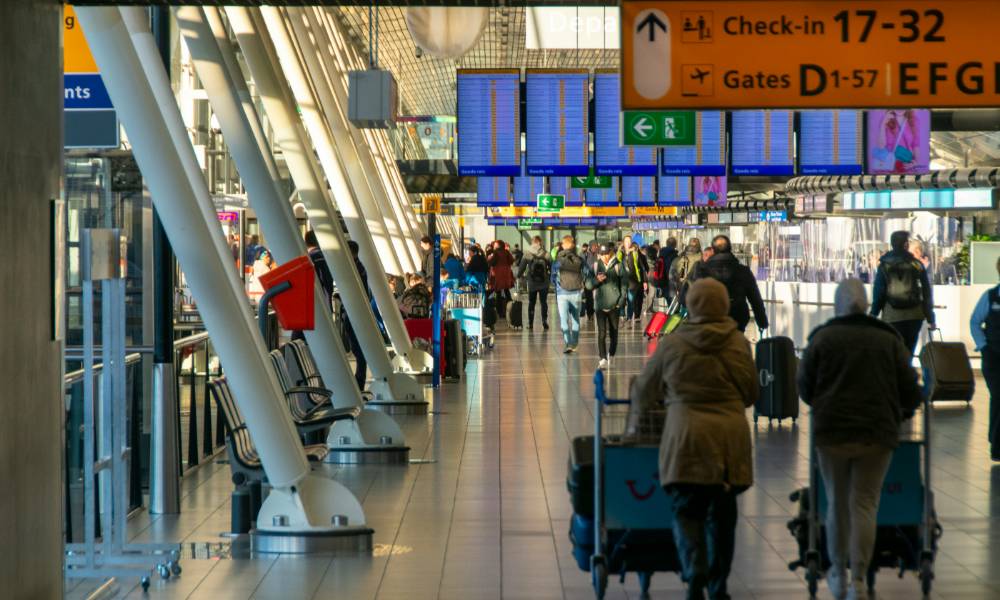Finding the perfect hotel at the right price can significantly enhance your travel experience, making the timing of your booking crucial. Whether you’re planning a weekend getaway or a month-long holiday, understanding when to book can lead to substantial savings and avoid the hassle of sold-out accommodations. Hotel pricing is influenced by a variety of factors, including seasonality, local events, and overall demand. In this article, we will explore several strategies to help you secure the best deals for your next stay, ranging from choosing the right season to navigating different booking platforms.
Key Strategies
By Travel Season
Understanding the concepts of peak, shoulder, and off-season is essential for any traveller looking to optimise their hotel bookings. These travel seasons significantly impact hotel availability and pricing, making it crucial to know the best times to book for savings and convenience.

- Peak Season: This is the time of year when a destination experiences the highest demand, often during summer months, major holidays, or special events. Hotels and flights are at their most expensive due to high demand, and availability can be limited. To secure a spot in your preferred hotel without breaking the bank, it’s advisable to book 3-6 months in advance. Early booking not only ensures availability but also offers a chance to snag early bird discounts.
- Shoulder Season: Falling between the peak and off-seasons, the shoulder season offers a perfect balance of reasonable prices, good weather, and fewer crowds. It typically occurs during the spring and autumn months but can vary based on the destination. For shoulder season travel, booking 1-3 months in advance is generally sufficient to secure good deals while still enjoying many of the benefits of peak travel times without the drawbacks.
- Off-Season: This period sees the lowest tourist activity due to various factors such as less favourable weather conditions or the end of popular events. However, it’s the best time to find the most significant discounts and deals, with hotels lowering prices to attract visitors. For off-season travel, flexibility is key, and booking 3 weeks to 3 months in advance can yield substantial savings. Additionally, travellers can often benefit from promotional offers, enhanced availability, and a more authentic experience of their destination without the crowds.
Here’s a table summarising the booking windows and potential benefits for each season:
| Season | Booking Window | Benefits |
| Peak | 3-6 months in advance | Ensures availability, early bird discounts |
| Shoulder | 1-3 months in advance | Balance of price and weather, fewer crowds |
| Off-Season | 3 weeks to 3 months in advance | Lowest prices, promotional offers, more availability |
During off-season travel, aside from lower prices, travellers might also find hotels offering extra perks such as free upgrades, complimentary services, or dining credits to enhance the appeal of staying during these quieter periods. You might even be able to get cheaper airport lounge access, too.
By strategically choosing your travel season and booking window, you can significantly impact the cost and quality of your trip. Whether you’re after the vibrant atmosphere of peak season, the balanced appeal of the shoulder months, or the unbeatable deals of the off-season, planning ahead is your ticket to a memorable and budget-friendly holiday.
By Days of the Week
Hotel pricing trends throughout the week are influenced by the type of destination and its primary visitors. Understanding these trends can help you secure better rates, especially if you have some flexibility in your travel schedule.
Weekday vs. Weekend Pricing Trends
- Weekend Rates: In leisure destinations, such as coastal resorts or popular tourist cities, hotel prices tend to peak over the weekend. This increase is due to higher demand as people try to make the most of their weekends away from work. Friday and Saturday nights are usually the most expensive nights to stay in such locations.
- Weekday Rates: Conversely, in business-oriented destinations, including major cities with a focus on corporate travel, hotels often lower their prices during the week to attract leisure travellers. These locations see a drop in demand once the business week ends, leading to more competitive rates from Sunday to Thursday.

Booking Strategies for Flexible Travellers
For those with flexible travel plans, adjusting your arrival and departure days can lead to significant savings:
- Target Midweek Arrivals: If you’re planning a trip to a leisure destination, consider booking your stay from Tuesday to Thursday. These midweek days are often the least expensive for such locations because they fall outside the peak demand of weekends.
- Weekend Stays in Business Cities: For trips to business-centric destinations, staying over the weekend can be more cost-effective. Hotels in these areas are looking to fill rooms left empty by the departure of business travellers, often leading to lower prices and special offers.
Here are a few strategies to make the most of these trends:
- Check Prices for Different Arrival Days: Use hotel booking platforms to compare prices across different check-in days. This can help you identify the cheapest days to book your stay.
- Extend Your Stay: If you’re already planning a weekend getaway, consider extending your stay to include a Tuesday or Wednesday night. This can average out your nightly rate, making the overall stay more affordable.
- Be Open to Last-Minute Deals: Hotels looking to fill rooms during slower weekdays may offer last-minute deals. These can be especially beneficial for local or short-distance travellers who can make quick decisions.
- Leverage Loyalty Programs: Some hotel loyalty programs offer better rates or perks for stays during less busy days. If you’re a member of such a program, check if there are specific benefits tied to weekday or weekend stays.
By understanding and utilising these weekday vs. weekend pricing trends, flexible travellers can unlock significant savings. It’s all about timing your stay to match periods of lower demand, thereby taking advantage of the hotel’s desire to increase occupancy during these times.
By Time of Day
The timing of your hotel booking, even down to the time of day, can influence the deals and rates you might encounter. This aspect of booking strategy plays into the dynamics of supply and demand, as well as the booking policies of hotels and online travel agencies (OTAs).
Last-Minute Deals
- Closer to the Date: As the check-in date approaches, hotels assess their occupancy levels and may offer last-minute deals to fill any remaining rooms. These deals are particularly prevalent through OTAs and hotel booking apps, where unsold inventory is visible to a wide audience. Booking a room on the day of or the day before check-in can sometimes result in significant discounts, as hotels are keen to avoid empty rooms.
- Time of Day Factor: The best time to hunt for these last-minute deals is often in the late afternoon or evening, around 4 PM to 6 PM local time. By this point, hotels have a clearer picture of their occupancy for the night and are more likely to drop prices to attract late bookers.

Importance of Early Booking
While last-minute deals can be appealing for spontaneous trips or flexible travellers, they are not a reliable strategy for all types of travel, especially for popular destinations and peak travel dates.
- Popular Destinations and Dates: For sought-after locations during high season, holidays, or special events, early booking is crucial. Hotels in these areas know that demand is high, and they have little incentive to drop prices as the date approaches. In fact, prices are more likely to increase as availability decreases. Booking well in advance — typically 3 to 6 months for peak travel times — ensures not only that you secure accommodation but also often results in better rates.
- Peace of Mind: Early booking also offers peace of mind, knowing that your accommodation is secured well ahead of your trip. This is particularly important for travellers with specific needs or preferences, such as room type, location, or amenities.
- Early Bird Discounts: Many hotels offer early bird discounts to encourage advance bookings. These can provide significant savings compared to rates offered closer to the date. Additionally, booking early often gives you a wider choice of rooms and better chances of securing any special requests you may have, such as high-floor rooms, early check-in, or late check-out.
Balancing Strategies
Choosing whether to book at the last minute or well in advance depends on your travel circumstances, flexibility, and risk tolerance. If you’re eyeing a popular destination or travelling during peak periods, early booking is the safer and often more economical choice. However, for more spontaneous trips or visits to less touristy areas, keeping an eye out for last-minute deals can lead to unexpected savings. Always consider the context of your trip and weigh the potential benefits of each approach to find the best strategy for your needs.
By Events and Holidays
Travel during major events and holidays requires careful planning, especially when it comes to booking hotels. These periods see a significant surge in demand, leading to higher prices and limited availability. Understanding how to navigate these peak times can help you secure better rates and enjoy your trip without the stress of last-minute arrangements.
Booking Well in Advance

For major events (like sports finals, festivals, or cultural celebrations) and public holidays, it’s essential to book your accommodation as early as possible. These occasions often attract visitors from around the world, filling up hotels months in advance. To ensure you get a place to stay that meets your preferences and budget, aim to book at least 4-6 months ahead. Early planning not only secures your accommodation but also often grants you access to early booking discounts and a wider selection of hotels.
Considering Alternative Destinations or Dates
If your travel plans are flexible, one effective way to avoid the high costs and crowds associated with major events and holidays is to consider alternative destinations or travel dates.
- Alternative Destinations: Look for locations near your initial choice but less affected by the event or holiday. These areas can offer similar attractions and experiences at a fraction of the cost and with fewer crowds.
- Shifting Dates: If you’re set on a specific destination, consider visiting just before or after the peak period. You’ll likely find lower prices and more availability, while still enjoying the essence of the place and possibly the tail end or setup of the event.
Events and Holidays in the UK to Consider
Here’s a table highlighting some key events and holidays in the UK that significantly impact hotel booking dynamics:
| Event/Holiday | Typical Date(s) | Booking Advice |
| New Year’s Eve | 31 December | Book 4-6 months in advance |
| London Fashion Week | February & September | Book 4-6 months in advance |
| Cheltenham Festival | March | Book 4-6 months in advance |
| Easter Weekend | Variable (March/April) | Book 4-6 months in advance |
| Glastonbury Festival | End of June | Book as soon as tickets are released |
| Wimbledon Championships | Late June to Early July | Book 4-6 months in advance |
| Edinburgh Festival Fringe | August | Book 4-6 months in advance |
| Notting Hill Carnival | August Bank Holiday (last Monday in August) | Book 4-6 months in advance |
| Christmas Markets | Late November to December | Book 4-6 months in advance |
| Christmas and Boxing Day | 25-26 December | Book 4-6 months in advance |
By planning your trip around these dates or considering alternatives, you can significantly enhance your travel experience, both in terms of cost and enjoyment. Always keep in mind the local calendar and event schedules when planning your UK visit to make the most of your trip while avoiding unnecessary expenses.
By Booking Platform
The platform through which you book your hotel can have a significant impact on the price you pay, the benefits you receive, and the flexibility of your booking. Differences in pricing and policies across online travel agencies (OTAs), hotel websites, and comparison sites mean that a savvy traveller will benefit from researching and comparing options before making a reservation.
Differences in Pricing Across Platforms
- Online Travel Agencies (OTAs): OTAs such as Booking.com, Expedia, and Agoda often offer competitive prices and a wide range of options, from budget accommodations to luxury hotels. They may negotiate special rates with hotels to attract bookings, which can sometimes result in lower prices than booking directly. However, it’s essential to check the terms and conditions, as some deals may come with restrictions like non-refundable deposits or no changes allowed.
- Hotel Websites: Booking directly through a hotel’s website can sometimes offer the best rates, particularly if they have a price match guarantee. Hotels may also reserve exclusive deals or perks for direct bookers, such as complimentary upgrades, free breakfast, or loyalty points. Direct booking often provides greater flexibility in terms of cancellations or modifications.
- Comparison Sites: Websites like Trivago and Kayak allow you to compare prices across multiple booking platforms, including OTAs and direct hotel bookings. They provide a convenient overview of available rates, but it’s always a good idea to visit the actual booking site before making a reservation to confirm the details and fine print.
Researching and Comparing Prices
Before booking, spend some time researching and comparing prices across different platforms. Look out for special promotions, discount codes, and flexible booking options that can offer additional savings or benefits. Keep in mind that the cheapest option may not always be the best value if it comes with restrictive conditions or lacks certain amenities that are important to you.

Major UK Booking Platforms
Here are some major UK platforms and websites you might consider when researching and booking your hotel:
- Booking.com: Offers a wide variety of accommodations across the UK, from hotels to B&Bs and vacation rentals, often with flexible booking options.
- Expedia: A global OTA that provides hotel bookings, flight reservations, and package deals, with frequent special offers and a rewards program.
- Agoda: While it has a strong focus on Asia, Agoda also offers competitive rates for UK hotels, with special deals and discounts available.
- Hotels.com: Features a vast selection of hotels worldwide, including the UK, and offers a loyalty program where you can earn a free night after collecting ten nights.
- Direct Hotel Websites: Many UK hotel chains and independent hotels offer direct booking through their websites, such as Premier Inn, Travelodge, and boutique hotels.
By taking the time to research and compare prices across these platforms, you can ensure you’re getting the best deal for your stay. Remember, the key to smart travel booking is not just finding the lowest price but securing the best value for your preferences and needs.
Additional Tips
- Be Flexible: Keeping your travel dates and destinations flexible can open up opportunities for better deals.
- Consider Loyalty Programs: Many hotels offer loyalty programs that provide savings, perks, and rewards for frequent guests.
- Use Price Tracking Tools: Several online tools and apps can track hotel prices for your desired location and dates, alerting you to any price drops.
- Sign Up for Hotel Emails: Subscribing to hotel newsletters can give you access to exclusive offers and promotions not available elsewhere.
Timing is everything when it comes to booking hotels. By employing the strategies and tips outlined in this article, you can make informed decisions that lead to considerable savings and a more enjoyable travel experience. Remember, a little planning and research can go a long way!








